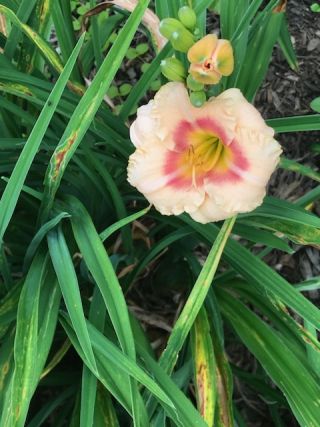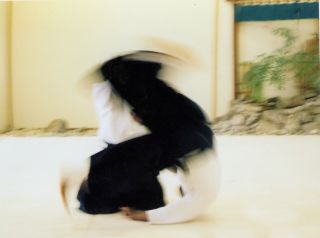The Process of Change. Personal Perspective: Creating meaningful differences in your life. Reviewed by Kaja Perina

Change is the only constant in life.—Heraclitus
It is not the strongest of the species that survive, nor the most intelligent, but the one most responsive to change.
—Charles Darwin
We all think about making changes, whether it be dieting, new year’s resolutions, relationships or a myriad of desires to alter life's challenges. This brings up the proverbial question; how did the consequences of your efforts relate to what you wanted to change?
Change isn't a passive action waiting for you to make it happen, it occurs at every moment. When I began my studies of anthropology, I remember a quote from media theorist Neil Postman asking "What kinds of changes are going on right now? Which are important?"
Postman believed the answer was related to how "form will determine, the nature of content." In other words, there are exciting possibilities that already exist within us despite sometimes being suppressed or neglected.

Think about it, how many times have you rekindled something that you previously put on the back burner? Every time we make a difference, whether big eureka ones or through small nuances, it originated in those "liminal" previously hidden moments that were available and just waiting to appear.
Understanding this is like a meditative "Ah" awareness, allowing for changes to appear in novel ways. This is how our species has and will continue to evolve. It occurs naturally when not stifled by cultural constraints that impose fragmentation and content over context. Initial change begins as a difference in search of a wider lens, or as some call it "second order change," which is in essence perspective.
The way to recognize that personal change is needed is to be mindfully present and assess your interactions. Step back and observe what possibilities you may need to pursue to feel more interdependent with all aspects of your life. Use poetic expression to create segues for new exploration. It is here that we can acquire the wisdom of knowing nature's “complexity,” which is defined as something being “interwoven,” and which cannot be undone, but continues to change.
Stephen Nachmanovich author of The Art Of Is, believes that when there is the “freedom to act at the moment, the capacity to improvise, can liberate us but also terrifies us.” It is in the ying-yang dynamics of the forest or the smiles when interacting with infants and the tasty smells of our kitchen. Nora Bateson, President of the International Bateson Institute describes it as "Aphanipoiesis,” how life coalesces toward vitality in unseen ways."

So how can we enjoy, celebrate and discern the useful consequences of inevitable ongoing change? Here are some suggestions and prompts to help begin this process:
Live your life ecologically using all your senses to understand how interdependent we are with others and nature.
Prompts: What are you not getting in life that is a core concern to you? How do you create perspective and how can you reframe your outlook on life?
Live in contexts that are supportive of wider contexts which reflect collaborative and mutual relationships that mitigate injurious situations.
Prompts: How do you create and maintain your environment and attitudes toward it? How do you resolve conflict and communication issues? How do you deal with paradoxes in your life? Describe your general attitude about life.
Live to improvise, experience, imagine and share as many wonderful potentialities as possible that are available to you and your relationships with others and the environment.
Prompts: What possibilities exist for you and how would you attain them? In what way are you creative? Describe how conflict can be good or bad.
Live through respecting your fallibility and ability to adjust, allowing change to evolve.
Prompts: How do you plan and implement your life’s goals? How do you cope with irrational thoughts that may arise? What would be your plan for self-fulfillment?
- Questions and Answers
- Opinion
- Story/Motivational/Inspiring
- Technology
- Art
- Causes
- Crafts
- Dance
- Drinks
- Film/Movie
- Fitness
- Food
- Oyunlar
- Gardening
- Health
- Home
- Literature
- Music
- Networking
- Other
- Party
- Religion
- Shopping
- Sports
- Theater
- Wellness
- News
- Culture
- War machines and policy

